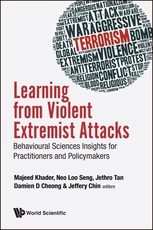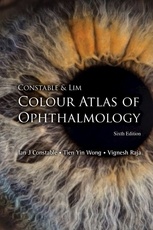
Learning from Violent Extremist Attacks: Behavioural Sciences Insights for Practitioners and Policymakers
Violent Extremism, Radicalisation, Behavioural Sciences, Terrorism, Learning, Day After, Countering Violent Extremism, Psychology, Risk Assessment, Crisis Assessment, Lone Wolf, Mental Illness, Bystander Intervention, Intergroup Conflict, Youths, Youth-centric Rehabilitation, Isis, National Resilience, 2016 Orlando Shooting, Social Media, Media Effects, Fake News, Religious Fundamentalism, Right-Wing Extremism, Islamophobia, Indonesia, Jakarta Bombings, Counter-Terrorism Intelligence, Smart Technology, Mindanao, Marawi, Singapore
Authors : Majeed Khader (Ministry of Home Affairs, Singapore & Nanyang Technological University, Singapore), Loo Seng Neo (Ministry of Home Affairs, Singapore), Jethro Tan (Ministry of Home Affairs, Singapore), Damien D Cheong (S. Rajaratnam School of International Studies (RSIS), Nanyang Technological University, Singapore) and Jeffery Chin (Ministry of Home Affairs, Singapore)
Publisher : World Scientific
ISBN : 978-981-3275-43-0
Violent extremists are evolving, constantly honing their strategies to out-manuever the 'good guys'. Faced with the quandary, challenges, and responsibilities of ensuring the safety of the society, practitioners and policymakers have to take decisive steps to respond and mitigate the impact of an attack. However, the daunting task of countering violent extremism is still plagued by the lack of basic understanding of the phenomenon.
This book, Learning from Violent Extremist Attacks: Behavioural Sciences Insights for Practitioners and Policymakers, attempts to fill a gap in the extant literature by offering a behavioural sciences approach to integrate our understanding of the threat of violent extremism, with knowledge drawn from diverse fields, such as psychology, sociology, history, political science, technology, and communications to identify the lessons learned and provide scientifically defensible interventions and approaches for both the practitioners and policymakers.
Loo Seng NEO is a Principal Behavioural Sciences Research Analyst with the Home Team Behavioural Sciences Centre at the Ministry of Home Affairs, Singapore. For the past 12 years, Loo Seng has been specialising in the area of violent extremism, particularly in the fields of online radicalisation, online threat assessment, pre-attack warning signs, and psychology of violent extremism. He works with a team of research analysts undertaking behavioural sciences research on violent extremism, resilience, and intergroup conflict. He has presented at many international conferences, trained law enforcement officers, and published many government research reports and peer-reviewed journals and book chapters on the topic of violent extremism. He has also co-edited a book titled Combating Violent Extremism and Radicalisation in the Digital Era in 2016, and a four-volume compendium titled A Behavioural Sciences Approach to Understanding Terrorism in 2017. Loo Seng is currently pursuing his PhD in psychology, researching on the personality profile of violent extremists at Nanyang Technological University.
Jethro TAN is a Senior Researcher with the Home Team Behavioural Sciences Centre. His research focuses on whole-of-society resilience in the aftermath of crisis. He studies a variety of security related issues pertaining to the day-after-terror scenarios, such as crisis communications, online falsehoods, and psychological trauma. Jethro is currently pursuing a Masters of Social Science (Psychology) from the National University of Singapore.
Dr Damien D CHEONG is a Research Fellow at the National Security Studies Programme (NSSP), S. Rajaratnam School of International Studies (RSIS), Nanyang Technological University, Singapore. Prior to this, he was Research Fellow and Coordinator of the Homeland Defence Programme at the Centre of Excellence for National Security (CENS) at RSIS from 2011–2017. He has researched and written on various topics related to homeland security, strategic communications, and political violence. His current research focuses on small state security.
Jeffery CHIN is a Senior Psychologist at the Home Team Behavioural Sciences Centre. Key areas of his work at the centre include applied research in violent extremism, investigative interviewing, deception, and leadership during critical incidents. As a concurrent appointment, Jeffery also supports the operations of the Crisis Negotiation Unit, Singapore Police Force, as a psychologist. Jeffery holds a Master degree in Investigative and Forensic Psychology from the University of Liverpool (United Kingdom). His Master's dissertation topic was on critical incident leadership.
FAQs
New Releases
-

Advances in the Molecular Understanding of Colorectal Cancer
-

Basic Research and Industrial Innovation in China
-

Constable & Lim Colour Atlas Of Ophthalmology: Sixth Edition
-

Essentials of Ophthalmology: For Medical School and Beyond
-

Fixed Revenue Accounting: A New Management Accounting Framework
All featured publishers and authors can avail of a free promotional interview on Enago Academy! Write to us now!
